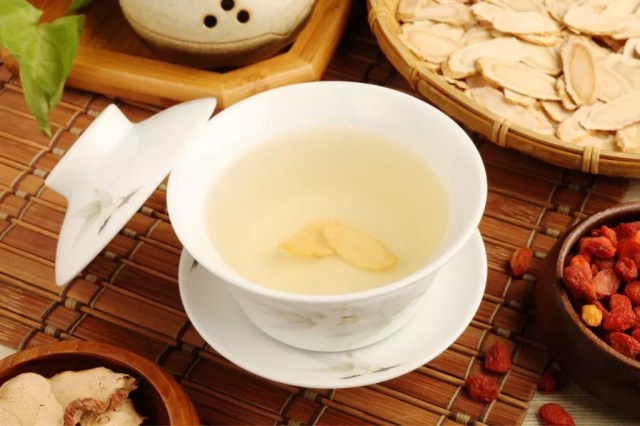
Millions suffer fatigue across the world, especially fatigue driven by a chronic illness. Some 80% of those with IBD suffer this deep, relentless sense of physical and mental exhaustion that considerably impacts their quality of life.
The causes behind fatigue are manifold, but these are the most common when linked to IBD:
- The deep exhaustion is caused by the physical burden of inflammation
- Poor sleep quality due to disturbances from symptoms
- Nutritional deficiencies, such as an iron deficiency which can lead to anemia. This can be caused by either blood loss (more common in UC) or malabsorption (more common in CD)
Many seek natural remedies to restore energy. And as more clinical trials are revealing the myriad health benefits of certain herbal compounds and vitamins, a natural route may be beneficial not only for improving fatigue but for restoring balance and strength to the entire body.
Without further ado, here are the best natural remedies to beat fatigue according to science.
1. Vitamin B1

Many suggest Vitamin B1 (or Thiamine) for fatigue, as this is one of the main symptoms of a B12 deficiency.
B1 plays a vital role in breaking down nutrients for energy, so a depletion may cause low energy levels. A 2020 placebo-controlled trial found a high-dose oral intake of thiamine was “significantly beneficial” to IBD patients suffering chronic fatigue.
2. Ginseng

Ginseng is a herb used widely in Traditional Chinese Medicine (TCM) to improve energy, emotional stability, well-being, and physical health. In recent years, the herb has been studied in clinical trials to determine its ability to improve fatigue.
There are two types of Ginseng: Asian and American. Both types contain ginsenosides, which have been found to suppress the production of pro-inflammatory cytokines such as TNF-α, IL-1β, and IL-6.
Ginseng is what is known as an adaptogen. Adaptogens are plants that, when ingested, promote homeostasis (a state of physiological equilibrium) by counteracting the effects of physical, chemical, or biological stressors. Ginseng not only protects the nervous system, but has also been found to exert cortisol-modulating effects.
A 2018 meta-analysis, found that taking Ginseng significantly improved fatigue scores, offering “modest support” for fatigue in patients with a chronic illness. Relieving both stress levels and inflammation, Ginseng may be a great natural solution for fatigue caused by chronic inflammation or stress related to IBD.
3. Danggui Buxue Tang

Danggui Buxue Tang (DBT) is a Chinese medicinal herbal mixture, commonly used to treat “women’s ailments”. Although clinical data is limited, one animal study observed the effects of this herbal combination on rats with induced Chronic Fatigue Syndrome.
The results showed that DBT may improve Chronic Fatigue Syndrome by modulating the immune system. The study also found that DBT decreased levels of the pro-inflammatory cytokines and pathways, IL-1β, TNF-α, and NF-кB, suggesting it may be particularly beneficial to those suffering fatigue driven by inflammation.
4. Ashwagandha

Ashwagandha (Withania somnifera) is an ancient Ayurvedic herb used to boost energy levels, improve vitality, and increase stamina and sex drive. The herb is also an adaptogen, helping the body resist stress and return to a state of balance. Here’s how Ashwagandha may benefit those suffering from fatigue:
The results of a 2014 animal study indicated that oxidative stress may play a large role in the development of Chronic Fatigue Syndrome and that antioxidants could be a useful treatment. Ashwagandha has been found to reduce lipid peroxidation and oxidative stress. It also reduces stress levels, helps regulate the nervous system, and improves sleep quality.
These properties, along with its ability to improve energy levels and focus, make Ashwagandha a promising natural remedy for those suffering constant exhaustion.
5. Maca

Maca is a Peruvian plant packed with vitamins, minerals, and amino acids. It’s also rich in benzyl glucosinolate which helps prevent glycogen depletion. As glycogen is a main source of energy for the body, this may help preserve energy levels.
A 2022 study observed the effects of Maca on fatigue in adult women and found that levels of fatigue decreased after 4 weeks. The researchers concluded that maca may have an anti-fatigue effect, although this appeared to work better for younger women.
6. Fish Oil

Fish oil that is rich in omega 3 has numerous health benefits, exerting a positive effect on the nervous system, immune system, gastrointestinal system, hormone levels, and cognitive function.
Its anti-inflammatory properties may be especially helpful for improving fatigue, as it is associated with pro-inflammatory cytokines, especially in IBD.
Lifestyle Changes
Aside from herbal remedies and supplements, there are a few other simple ways to alleviate fatigue from home.
Let the light in
As soon as you wake up, open your curtains and let the natural sunlight into the room. Alternatively, sit outside in the sun for a few minutes. This helps set your internal clock, making you more alert during the day, and more calm and relaxed in the evening. The result is a deeper, more restful sleep and more energy during the day.
Stay Hydrated
One of the first symptoms of dehydration is often fatigue, with studies showing improved energy levels and focus when we’re drinking an adequate amount of water. It may help to carry a water bottle around, with sliced-up lemon, cucumber, and mint leaves for extra hydration and refreshment.
Fatigue is something that can actually be so personal
Although there are many natural ways to relieve fatigue, the cause behind consistent, low-grade exhaustion is an important factor when it comes to treatment. The best path is to consult with your doctor, nutritionist or dietician so they can help pinpoint the exact cause, screen out any deficiencies, and determine the most appropriate treatment for your specific condition.






